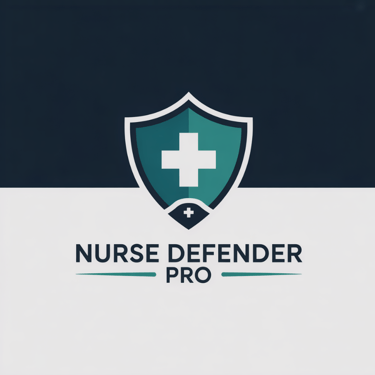The First 72 Hours of a Nursing Board Investigation: Why What You Do Next Can Save Your Career
The first 72 hours after a nursing board investigation notice can decide your career’s future. Here’s how to protect your license — and your peace of mind — before it’s too late.
8/15/20253 min read


One minute you’re charting, the next you’re holding an official envelope from the Board of Nursing. You can feel your pulse in your throat. Words blur on the page. All you can think is:
What does this mean? What did I do wrong? Am I about to lose my license?
Here’s the hard truth: the clock has already started. The first 72 hours after receiving that notice are critical. In those three days, the actions you take — and the mistakes you avoid — can decide whether this investigation becomes a minor bump in your career or the end of it.
This is not the time for guesswork. This is the time for strategy.
Hour-by-Hour: The First 72 Hours That Matter Most
Hour 1–12: The Shock Phase
It’s human to panic. It’s human to want to tell someone — anyone — what just happened. But this is also the danger zone. In these first hours:
Do not post about it online — even vague references can be used against you.
Do not discuss with coworkers — word spreads quickly, and your statements can get twisted.
Read every line of the notice carefully — highlight dates, deadlines, and instructions.
The goal: move from emotional reaction to calculated action.
Hour 13–24: The Evidence Phase
This is when you start gathering your defense before the story gets rewritten without you.
Pull relevant patient charts, shift notes, and communication logs.
Locate any policies and procedures tied to the incident.
Secure copies of emails, text messages, or assignments that provide context.
The goal: lock down documentation while it’s still accessible.
Hour 25–48: The Strategy Phase
Now that you have the facts, it’s time to plan your response.
Determine who will represent you — legal counsel, union representative, or both.
Outline your timeline of events so you don’t forget key details under pressure.
Review the Board’s request carefully — know what’s mandatory and what’s optional.
The goal: ensure your first response is complete, factual, and professional.
Hour 49–72: The Communication Phase
This is where most nurses slip up — they respond too quickly, too casually, or too emotionally. Every email, phone call, or interview answer can either strengthen your case or weaken it.
Use scripts or templates so your statements are precise and consistent.
Confirm any advice from counsel before submitting information.
Prepare for possible interviews with mock Q&A practice.
The goal: communicate with clarity and protect your credibility.
The Cost of Common Mistakes
Nurses often lose ground in these first 72 hours because they:
Vent to the wrong people.
Delay collecting documents until it’s too late.
Submit rushed, sloppy responses without legal review.
Assume the issue will “blow over” without action.
The nursing boards are not in the business of letting things slide. Once an investigation starts, the process moves forward whether you’re ready or not.
How the Nurse Defender Pro Packet Fits In
This is exactly why the Nurse Defender Pro Packet exists — so you don’t have to figure this out in real time, when the stakes are at their highest.
With the packet, you’ll have:
Immediate response templates that prevent self-incrimination.
Step-by-step evidence collection checklists so nothing slips through the cracks.
Scripts for professional communication with investigators and employers.
A clear, easy-to-follow timeline for the first 72 hours and beyond.
Emotional support tools to keep you focused and grounded.
Think of it as your emergency playbook — the binder you hope you never need, but if you do, it’s right there, ready to go.
Why Preparation is Power
Every nurse thinks, It won’t happen to me. Until it does.
It could be a charting error. A miscommunication. A coworker’s complaint. A patient’s family who doesn’t understand what happened.
And when it happens, the difference between keeping your license and losing your career can come down to how you handle those first 72 hours.
You wouldn’t walk into a code blue without knowing where the crash cart is. Don’t walk into an investigation without your defense kit ready.
Your Next Step
The investigation clock doesn’t pause for panic. Every moment counts.
If you have the Nurse Defender Pro Packet, you already have your plan. If you don’t, now is the time to get it — before you need it.
A prepared nurse is a protected nurse.
Don’t gamble with your license.
